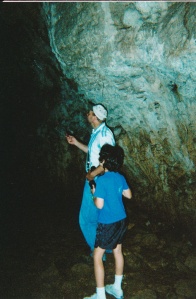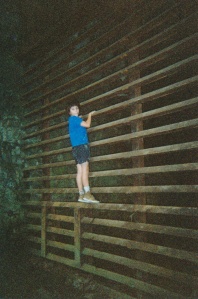In The Republic, Plato envisions a philosopher-king returning to the cave to lead the citizen-prisoners still in chains. During his reluctant leadership, he puts their welfare ahead of his own because he has basked in the light of Good. The light of Good (the Sun) is the only thing that can illuminate Absolute Truths.
In reality, except for prophets and reformers—and here I’m thinking along the lines of Jesus, Buddha, and William Wilberforce—it seems that most of the prisoners who see the surface come back saying the sun, or the light of Good, has been extinguished, perhaps permanently. An excellent and tragic example is Moshe the Beadle, a crucial figure in Night by Elie Wiesel. Moshe is the first to make an appearance in Night, a stark retelling of Wiesel’s Holocaust experiences. Moshe, a barefoot mystic enthralled by the intricacies of the cabbala, leaves the Hungarian town of Sighet, only to return months later, still barefoot but with his look of distant rapture replaced with the horrors of mass Jewish graves in the forests of Poland.
Like Plato’s freed prisoner, upon his return to the cave Moshe’s description of the realities beyond are treated with contempt by the Jewish inhabitants. Perhaps their contempt is laced with fear, making them even less likely to believe his story. Wiesel’s viewpoint as a child narrator doesn’t explore this possibility. At any rate, I imagine myself more amicably disposed to being seduced by the glowing possibilities expounded by an optimistic madman (are you SURE that vegetables planted by naked gardeners put out double the produce??!!!) versus my susceptibility to the depressing options presented by one who has glimpsed Armageddon. We can only pity the Jews of Sighet for their decision to remain ignorant of the horrible reality about to engulf them.

